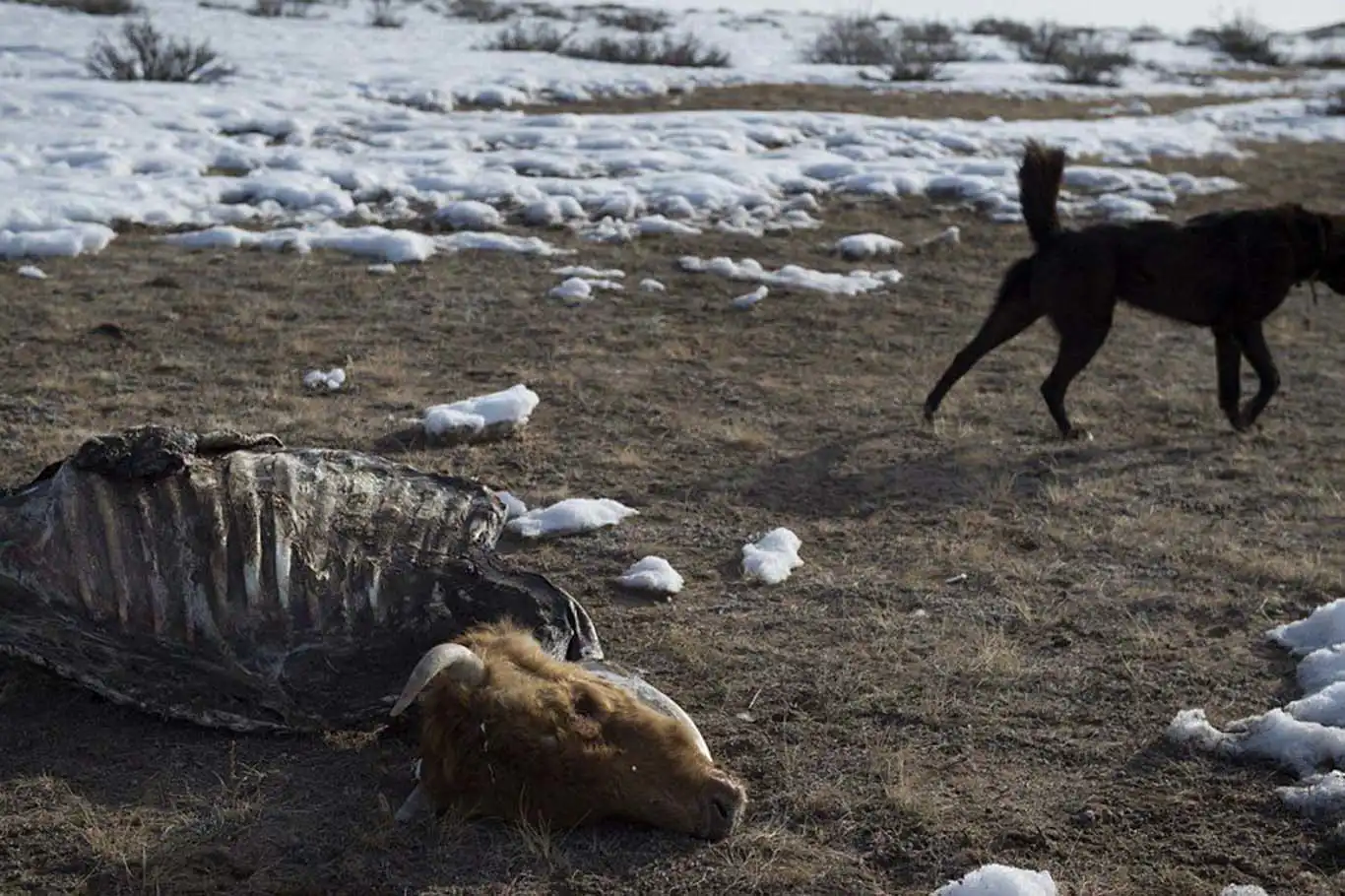Harsh winter in Mongolia kills over 3 million livestock


Mongolia is facing a devastating blow to its economy and way of life as extreme winter weather, known as "dzud," has led to the deaths of over 3 million head of livestock, according to the country's State Emergency Commission (SEC).
The dzud, a Mongolian term for a harsh winter with heavy snowfall and extreme cold, has caused widespread hardship for herders who rely on their animals for income and survival. With the ground frozen and covered in snow reaching depths of up to 1 meter (3.3 feet), livestock are struggling to find food and shelter, leading to widespread deaths.
This winter has been particularly harsh, with over 80% of Mongolia experiencing significant snowfall. The country, known for being one of the last remaining nomadic societies, has recently declared a state of high alert due to the dzud and its devastating impact.
Livestock husbandry is considered crucial for diversifying Mongolia's economy, which is heavily reliant on mining. The recent losses represent a significant setback, with the national livestock population dropping from 64.7 million at the end of 2023 to a much lower number.
The Mongolian government is facing pressure to find solutions to the ongoing crisis and support the affected herders. The full extent of the economic and societal impact of the dzud remains to be seen, but it is clear that this harsh winter has dealt a heavy blow to Mongolia. (ILKHA)
LEGAL WARNING: All rights of the published news, photos and videos are reserved by İlke Haber Ajansı Basın Yayın San. Trade A.Ş. Under no circumstances can all or part of the news, photos and videos be used without a written contract or subscription.
Iran has executed Aghil Keshavarz after the country’s Supreme Court upheld his death sentence on charges of espionage and intelligence cooperation with Israel, judicial authorities announced.
At least eight people have been killed and 27 others injured after a Russian ballistic missile strike hit port infrastructure in Ukraine’s southwestern Odesa region, Ukrainian authorities reported Saturday.
The United States on Friday launched extensive air and artillery strikes against ISIS positions across central Syria as part of what it described as a major retaliatory operation following a deadly attack on US forces near Palmyra.
At least five Palestinians were killed on Friday when Israeli shelling struck a school-turned-shelter in eastern Gaza City, according to Gaza’s Civil Defence, transforming what had been a wedding celebration for displaced residents into a scene of devastation and bloodshed.